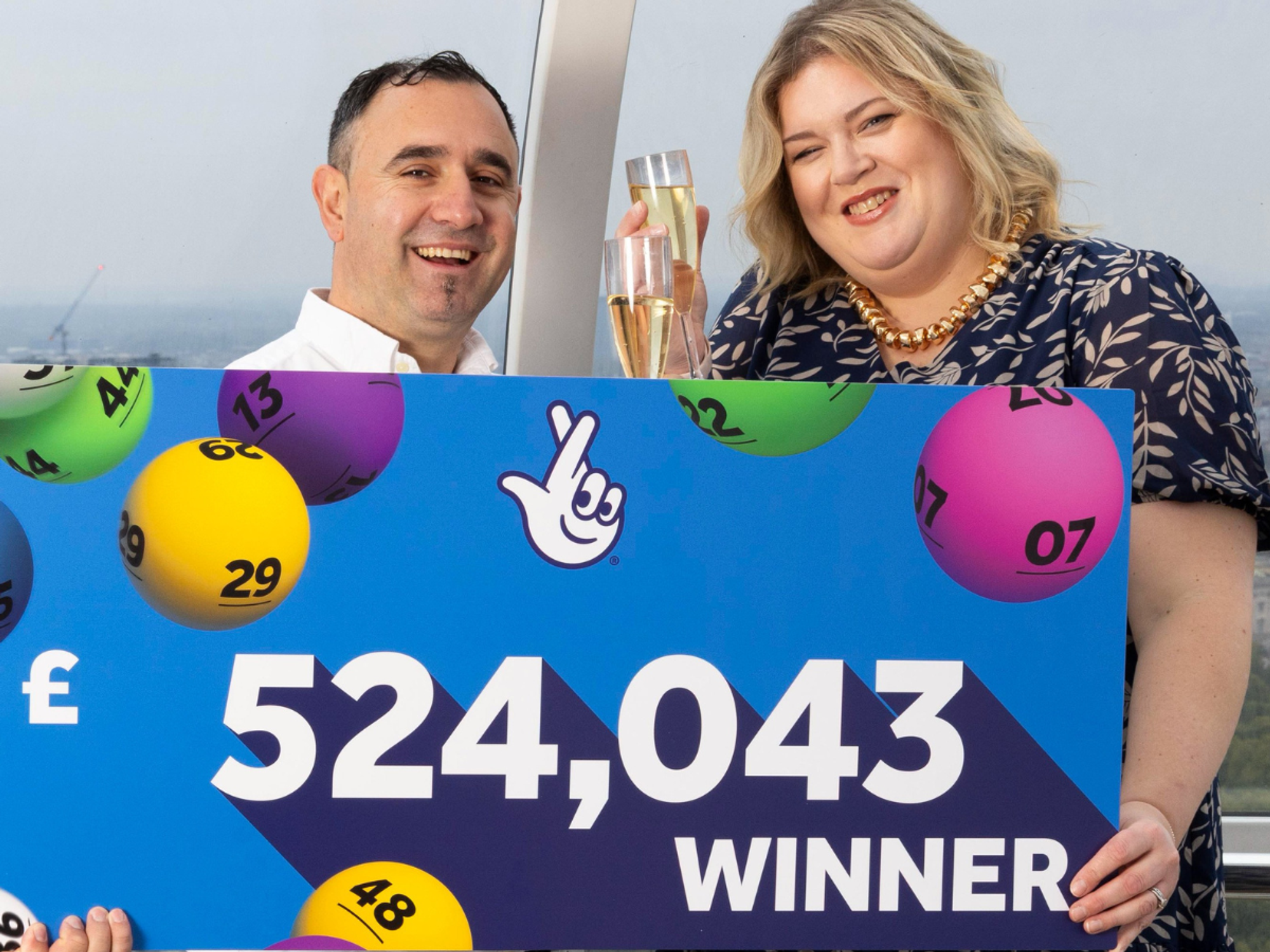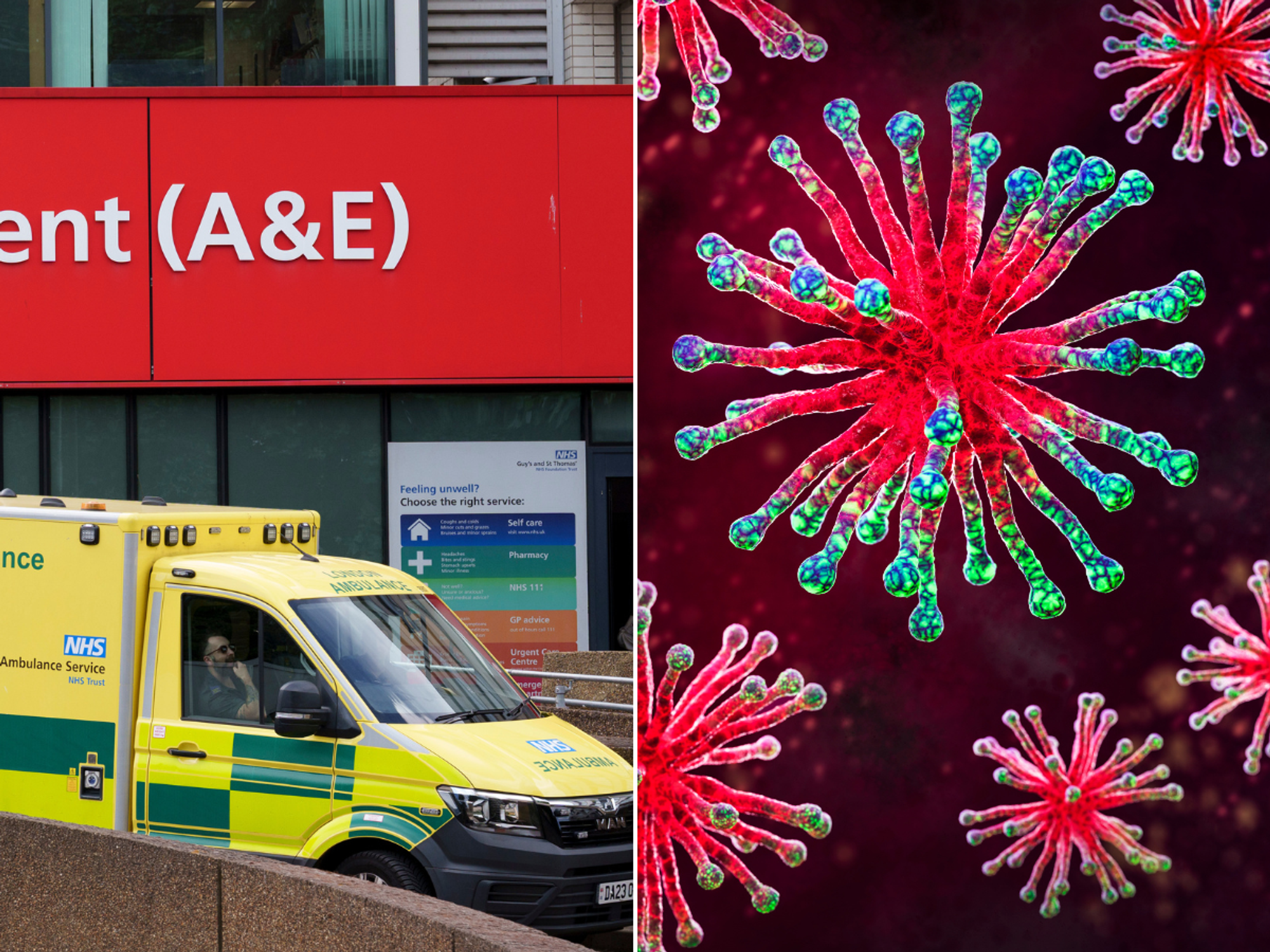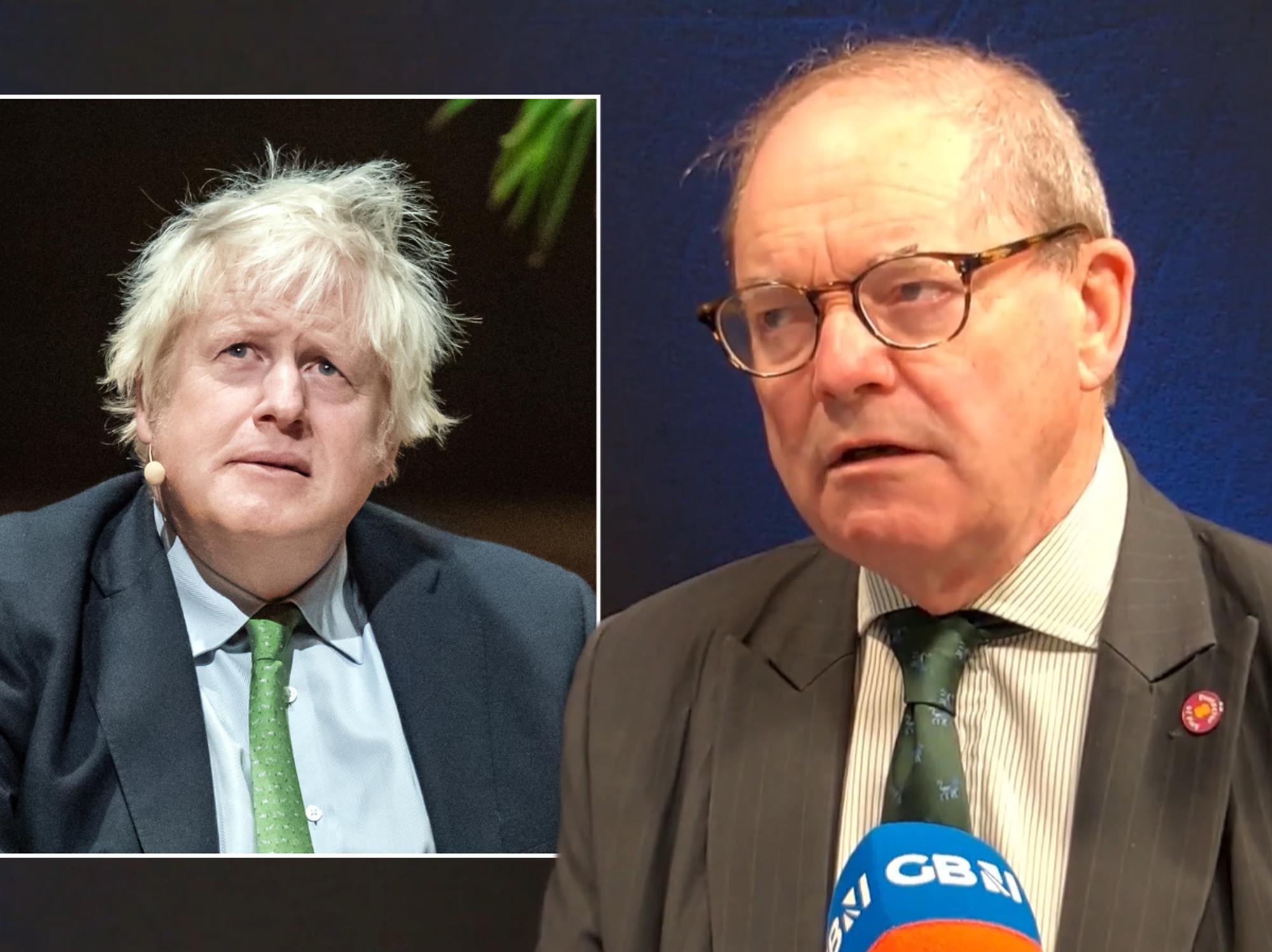GBN Health Check: Is addiction really a disease? Scientists, psychologists and ex-addicts weigh in
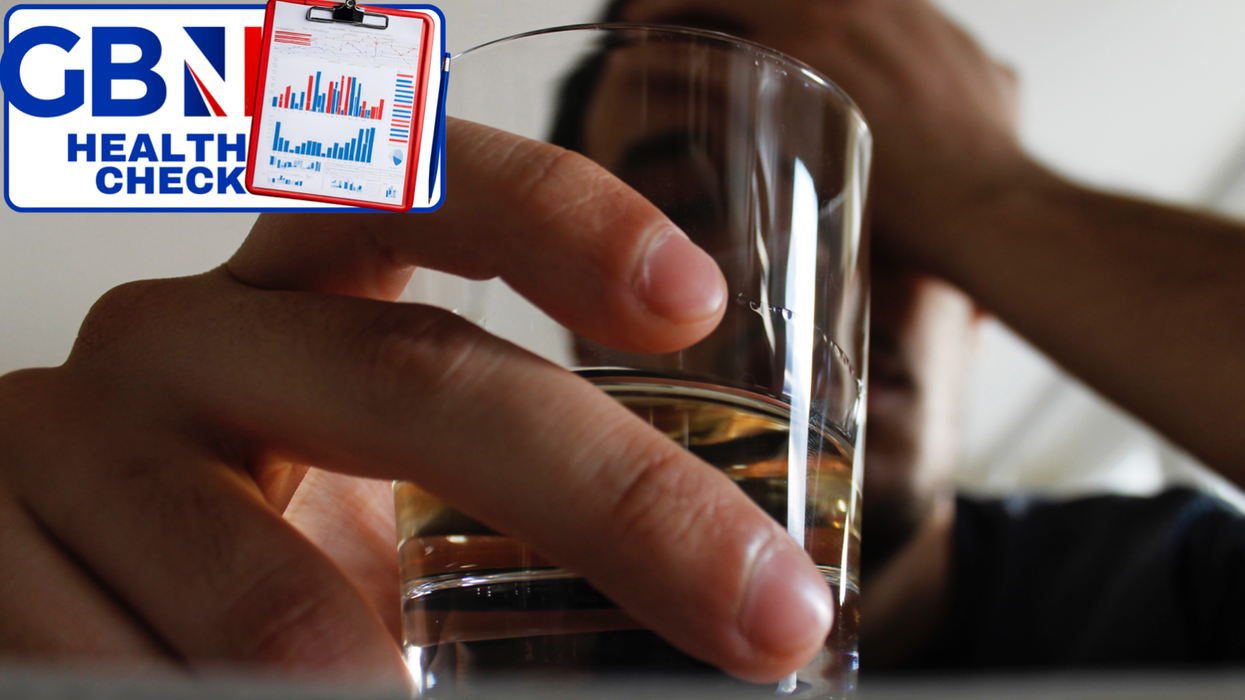
Addiction is widely considered to be a disease but this claim has come under criticism
|Getty Images/GB News

In this week's GB News Health Check, our digital health editor looks at how people think about addiction, exploring both sides of the argument via neurocientists, psychologists and former addicts
Don't Miss
Most Read
How we think about addiction matters because it determines how we treat a person caught in its grip and how society allocates resources.
In the UK, it is estimated that addiction costs £15billion of government resources yearly, and on average £4billion of the annual National Health Service (NHS) budget is spent on alcohol and drug misuse.
And yet, there were only 289,215 adults in contact with drug and alcohol services between April 2021 and March 2022.
This discrepancy either reflects a spending black hole or that a relatively small section of the population demand an enormous amount of resources and support.
And it's not obvious that the treatments even work: over 20 per cent of individuals relapse within one month and a further 40 per cent within six months.
One might reasonably conclude therefore that our current conception of addiction is leading to perverse outcomes.
The NHS defines addiction as not having control over doing, taking or using something to the point where it could be harmful to you.
Mainstream opinion views addiction as the result of a pathological brain dysfunction, or a "hardware" issue.
The American Medical Association (AMA), the National Institute on Drug Abuse (NIDA), and the World Health Organization (WHO) all endorse this view, formally recognising addiction as a disease.
This model frames addiction as a medical condition that can be diagnosed and treated, encouraging medical and therapeutic interventions.
Where does this view come from?
The view originated as a response to prevailing moralising and stigmatising attitudes toward addiction.
Then, in 1997, former director of the US National Institute on Drug Abuse Alan Leshner famously asserted that “addiction is a brain disease”.
Articulating a set of assumptions and implications to defend his position, Lesher claimed that "addiction is tied to changes in brain structure and function is what makes it, fundamentally, a brain disease”.
His paper, now cited almost 2000 times, has been hugely influential, with multiple proponents, including current NIDA Director, Nora Volkow, neuroscience researchers, addiction experts, and even politicians endorsing its conclusions.
And research continues to advance our understanding of the brain. A study published last year in Nature Mental Health suggests that a common genetic signature may increase a person’s risk of developing substance use disorders.
“A common misperception is that addiction is a choice or moral problem, and all you have to do is stop. But nothing could be further from the truth,” said Doctor George Koob, director of NIH’s National Institute on Alcohol Abuse and Alcoholism.

The view was a response to prevailing moralising and stigmatising attitudes toward addiction
|Getty Images
The other side of the coin
Critics have also developed their arguments over time.
The modern view of addiction appeals less to moral objections, and more to the notion that it is neither supported by robust data nor is it helpful for people with substance use problems.
Doctor Marc Lewis is one of the few neuroscientists to break ranks with his peers and push the software view.
In his book The Biology of Desire: Why Addiction is not a Disease, he contests that considering addiction as a disease is not only wrong, but also harmful.
He argues instead that addiction is a behavioural problem: it is a habit that grows and self-perpetuates relatively quickly, when we repeatedly pursue the same highly attractive goal.
In Lewis' telling, addictive patterns develop rapidly and become more deeply entrenched than other, less compelling habits, and that is because of the intensity of the attraction that motivates us to repeat them.
It therefore falls on willpower and determination to break the cycle, he claims.
Viewed in this way, addiction is an extreme outcome of a normal functioning brain as opposed to a pathology.
Lewis goes one step further, criticising the hierarchy that the hardware view legitimises. For him, it is paternalistic and disempowering.
Naturaly, those working in the field of psychology have also expressed scepticism about the biological argument.
Venetia Leonidaki, an NHS consultant and clinical psychologist specialising in addiction, tells GB News that the biological narrative could "drift our attention away" from the "psycho-socio-political dimensions of addiction, including its function as a coping mechanism, our addictiogenic society, poor regulation and legislation".
Doctor Alice Feller, a California-based clinical psychiatrist and addiction specialist, lands somewhere in between these two polarising viewpoints.
"I think you could call it either one, but it depends on where you're coming from," she told GB News.
After treating patients with addiction and serious mental illness for decades, she has come to view alcoholism, for example, as having a "biological basis", noting that it "runs in families" and you can be born with "really good enzymes that just chew up alcohol and let you drink more and more".
Indeed, a study led by Linköping University Professor Markus Heilig identified an enzyme whose production is turned off in nerve cells of the frontal lobe when alcohol dependence develops.
The deficiency in this enzyme leads to continued use of alcohol despite adverse consequences.
LATEST DEVELOPMENTS
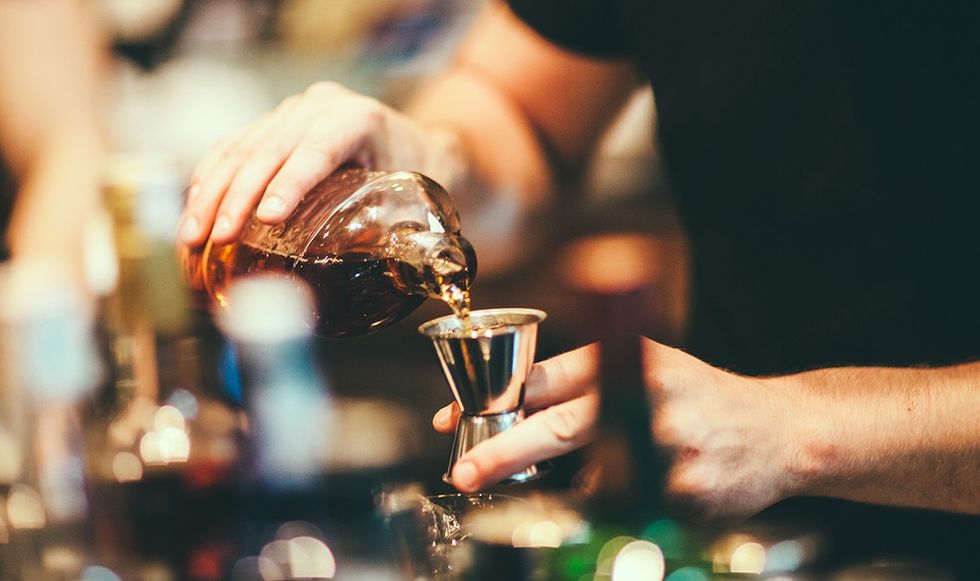
A deficiency in a specific enzyme leads to continued use of alcohol despite adverse consequences
| Getty ImagesFirst-person accounts of addiction make the hardware argument persuasive.
One weekend in 2018 will forever remind Harry, 30, of how "completely powerless" he had become to alcohol and drugs.
It was the day before Mother’s Day - the first one after his mum was confirmed to be in remission from breast cancer.
It was Friday afternoon and he was finishing up work for the weekend. It was payday and his plan was head home to his parents as soon as he clocked off.
A few of the work lot were meeting in the local pub for a beer.
"By this point, I had started to suspect I may have had a problem with substances - but I really thought I could control it and knew better," Harry told GB News.
He stopped at a local shop to pick up some flowers and a card for his mum and then the compulsion kicked in.
"I stood in the shop staring at the alcohol behind the counter and I thought to myself, 'One won’t hurt'. So I texted my mum and said I would be home in 30 minutes, rang the boys and headed to the pub round the corner."
After ten minutes of being there, Harry had already drunk three pints.

Ex-addicts describe experiencing 'intense cravings' and an 'inability to control impulses'
|Getty Images
By Monday morning he was £2,300 down and "in absolute bits", having missed Mother's Day, recovered his car at some point to find two parking tickets and was given a final written warning from work.
"But the worst part was, I had let my mother down…again. They [parents] weren’t even upset by this point; they were just used to it. I had only planned to go for one, but as soon as that drink touched my lips everything was off the table. I put my drugs ahead of everyone that I loved and anything that meant anything to me."
Sadly that weekend was not the final "wake-up call" for Harry, who continued to use almost daily for the next five years.
He said: "I lost jobs, relationships, friendships, family, homes, cars, everything to the disease of addiction."
Likewise, a former gambling addict tells GB News the symptoms of his addiction were "profound and multifaceted" adding: "I experienced intense cravings, an inability to control my impulses, and a relentless preoccupation with betting."
Stuck in a "downward spiral", Matt Zarb-Cousin, 30, is convinced his addiction was a disease, which he defines as a chronic condition that fundamentally altered his brain function and behaviour.
"Addiction is not merely a lapse in willpower or a moral failing. It is a complex interplay of genetic predispositions, environmental influences, and psychological vulnerabilities," he claimed.
For Matt, understanding that addiction reshapes the brain’s reward system can help us approach it with the empathy and comprehensive care it requires.
This "reward system" he alludes to involves complex interactions between brain regions and chemicals called neurotransmitters.
Dopamine, a neurotransmitter associated with pleasure and reward, and others including endorphin and serotonin systems, are involved in the biology of addiction.
When a person engages in addictive behaviours (such as substance use or gambling) the brain’s neurotransmitters change and this leads to feelings of pleasure or reward, which can reinforce the behaviour.
Over time the brain adapts, reducing neurotransmitter release in response to the addictive stimulus (even at the same doses), leading to tolerance.
Scientists at The Rockefeller University recently uncovered a mechanism in the brain that allows cocaine and morphine to hijack natural reward processing systems.
They discovered a largely overlapping population of cells in the brain that respond to both addictive drugs and natural rewards, and demonstrated that repeated exposure to the drugs progressively disrupts the cells’ ability to function normally, resulting in behavior being directed toward drug-seeking and away from natural rewards.

Cocaine has been found to hijack natural reward processing systems
|Getty Images
All this makes columnist Peter Hitchens' dismissive view that "people take drugs because they enjoy it" sound jarring.
Your correspondent remains agnostic, however. Addiction appears to be the result of complex interactions that straddle biological, social and environmental lines.
To say that substance use disorders are "all biology" seems like an oversimplification.
Severity also appears to be on a sliding scale, with some people managing to pull back from the brink while others are sadly unable to do so.
It remains unclear why some people get addicted and others don't.
It also raises questions about the notion of free will, which seems fundamentally mysterious upon interrogation. What drives a person to pursue a specific course of action?
To pose the question may be missing the point.
For Feller, the clinical psychiatrist based in California, less time needs to be spent on defining addiction and its root causes, and more on dealing with it.
"We should be tracking what works and what doesn't work and stop funding things that don't work," she said.
She points to the fentanyl crisis that's currently gripping the US. The potent synthetic opioid is responsible for 70 per cent of annual overdose deaths.
What is working?
Strictly referring to the US context, Feller views supervised injection facilities, where addicts can come and use clean needles, a prime example of where compassion crosses over into "crazy".
Evidence has found this to be an effective intervention, however. A review of 22 studies found supervised injection facilities were mostly associated with significant reductions in opioid overdose morbidity and mortality, significant improvements in injection behaviours and harm reduction, significant improvements in access to addiction treatment programs, and no increase or reductions in crime and public nuisance.
The clinical psychologist is also agnostic about her country's pivot to legalising cannabis, which 24 states have now implemented.
She cites research published last year which found that cannabis legalisation in her home state of California lowered the use of tobacco and alcohol for young adults, aged 18-20.
Opponents of legalisation have long warned that legalisation of cannabis would serve as a "gateway" to the use of other drugs.
However, fears about the unchecked use of cannabis are not unfounded. One systematic review found regular cannabis use impairs cognition, lowers motivation, and can lead to mental health problems.

Cannabis legalisation actually lowered the use of tobacco and alcohol for young adults, one study found
|Getty Images
Conversely, research suggests the answer to addiction may lie in taking more drugs not less.
Psychedelics have shown considerable promise as a treatment for addiction. Two studies have shown some evidence that psilocybin is effective for people with a diagnosis of alcohol use disorder.
The largest clinical study was a randomised control trial with 93 participants. Those who received two high doses of psilocybin and psychotherapy over 12 weeks had a significant reduction in heavy drinking days over 36-weeks compared to those receiving psychotherapy with a placebo drug. No serious adverse events were reported.
This followed a smaller trial involving 10 participants, in which those participants receiving high doses of psilocybin in addition to talking therapy reported reduced heavy drinking days and reduced craving at 36 weeks.
The psychedelic compound found in "magic mushrooms" has also shown promise in curbing nicotine addiction and is being researched as a possible treatment for gambling addiction.
Research also suggests taking controlled doses of ketamine and MDMA may hold the key to kicking addiction.
These drugs are not generally considered to be addictive (called abuse potential in research), although there are concerns about ketamine.
Real data on more conventional treatments are hard to come by.
In the UK, treatment strategies are generally tailored to individual needs and circumstances, focusing on the biological, psychological and social factors contributing to addiction.
This can include:
- Medication-assisted treatment may be used for certain substance dependencies to manage withdrawal symptoms (the symptoms somebody experiences when a drug is suddenly stopped after a lengthy period of regular use), reduce cravings, or block the effects of drugs.
- Various forms of psychotherapy including cognitive-behavioural therapy (CBT), motivational interviewing Dialectical behaviour therapy (DBT) Psychodynamic therapy
None of the above treatments stand a fighting chance of turning the tide on addiction if countries lose the war on drugs.
Whether governments like it or not, they are in an arms race with vast drug trafficking networks, which are flooding Europe and America with ever cheaper and purer substances.
The future of addiction hangs in the balance and it is not clear who will win.





